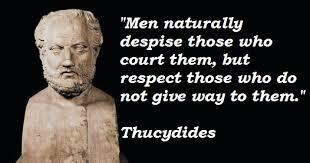
When all judgements are associated with preferences then the only acceptable motive is what is conventionally deemed to be for the common good.
All judgements must adhere to this principle, otherwise they will be accused of being motivated by the antithesis of what is conventionally deemed to be the common good.
Truth never factors into any presumed motive.
A conventionally deemed common good immediately leads to an individual benefit, even at the cost of truth.
Such convention of immediate reflection, has not long to wait for a revised transcendentally reduced forshadowance, thereby setting up the delineated compression of the two into a synthetic unity.
Brutal bastardized benevolence, barricading banality in blurbification buggery.
Lori, how dare you, there are kids present.
Anyway forget it.
By way of an apology to cheer you up.
Dastardly dehumanization deserving decadent debauchery.
Divisive dilatants delineating divisive drivel, determining divine destitution.
Ibid
Damn dude, dirty deeds done during divinity’s destructive dominion.
Or we can ground ourselves in known reality and leave beliefs out the equation as well as the hubris of delineating D words as a show of linguistic mastery.
every evil elephantine eaves-dropper elevates eleven Everly Brothers, though they were not an odd number, but an even… & an eventful evening… evaluates Evalena upon evacuation from the east end… empathically and with eloquent empathy
Course througGuanyin,
JESUS SANSKRIT WORDS ON THE CROSS
The Gospels and Christian theologians say that Iesous used an Aramaic word when he prayed in Gethsemane, saying ‘Abba Father,’ as a term of endearment meaning Daddy Father. The Gospels also account those who overheard him say the foreign language word, were a ways off, and wondered what it could mean. It is only now in the 20th century that Christians say it means, Daddy. This conclusion is a little irresponsible because in the many Aramaic documents that survive today, the word Abba is not used in this way; some think the word did not exist in Aramaic at the time. Most scholars on this matter add that in the culture of the day, a son would never call his father, daddy and live to tell the tale—even more so if the father was a king. Even seventy years ago, in the West, sons would not call their fathers, Daddy. It seems as if this is one more instance where early Christianity went to pains, at their own detriment, to deny Iesous’ eastern ministry.
The Sanskrit word Abha, meaning Light, is the natural way to address Amita (Infinite) Abha (Light), Amitabha to say, Abha Father or Light Father. Iesous used the term all the time.
When the Gospels Matthew and Mark suggest that Iesous used Aramaic words on the cross; they have to stretch to not acknowledge the Sanskrit. Again, the hearers are a ways off, and do not understand the language, but described only the sounds he made. They moved the sounds around, twisted the grammar, and they came up with something very incongruent—yet put it out there for posterity. According to Christianity, Iesous quotes a Psalm and calls his Father not Abba, not Yahweh, not Eloha (singular for Elohim) but El, father of the god Baal. Here, he is said to cry out, ‘Eli (my God El) why have you forsaken me’. Christian doctrines have many incongruences and much circular reasoning, but in my view, this one makes the top ten. Unthinkable.
In the Sanskrit, but not according to the above Gospels’ sentence construction, the words heli hela homa bhagajati is congruent with Iesous life and ministry. In Wayist tradition, he used similar sounding Sanskrit words twice, once in a poem of dearness to Mari, the second time to say, I paraphrase, ‘This sacrifice helps you to see the common denominator, and stop the divisions among you’.
OK?
Jingoist jurisdictions juxtaposed justify juvenile judging Jewishness jokingly.
Jock-strapped jackasses jettison jubilations joyfully.
OK
Peter piper picked a pair of perverse pretentiousness, petering positively and presumptuously pirouetting profusely in particular to prostitution.
Preferring platonic perversity pumpkin prerogatives prevented pure pejorative premonitions pretending pre-emptively primate primitive passions.


